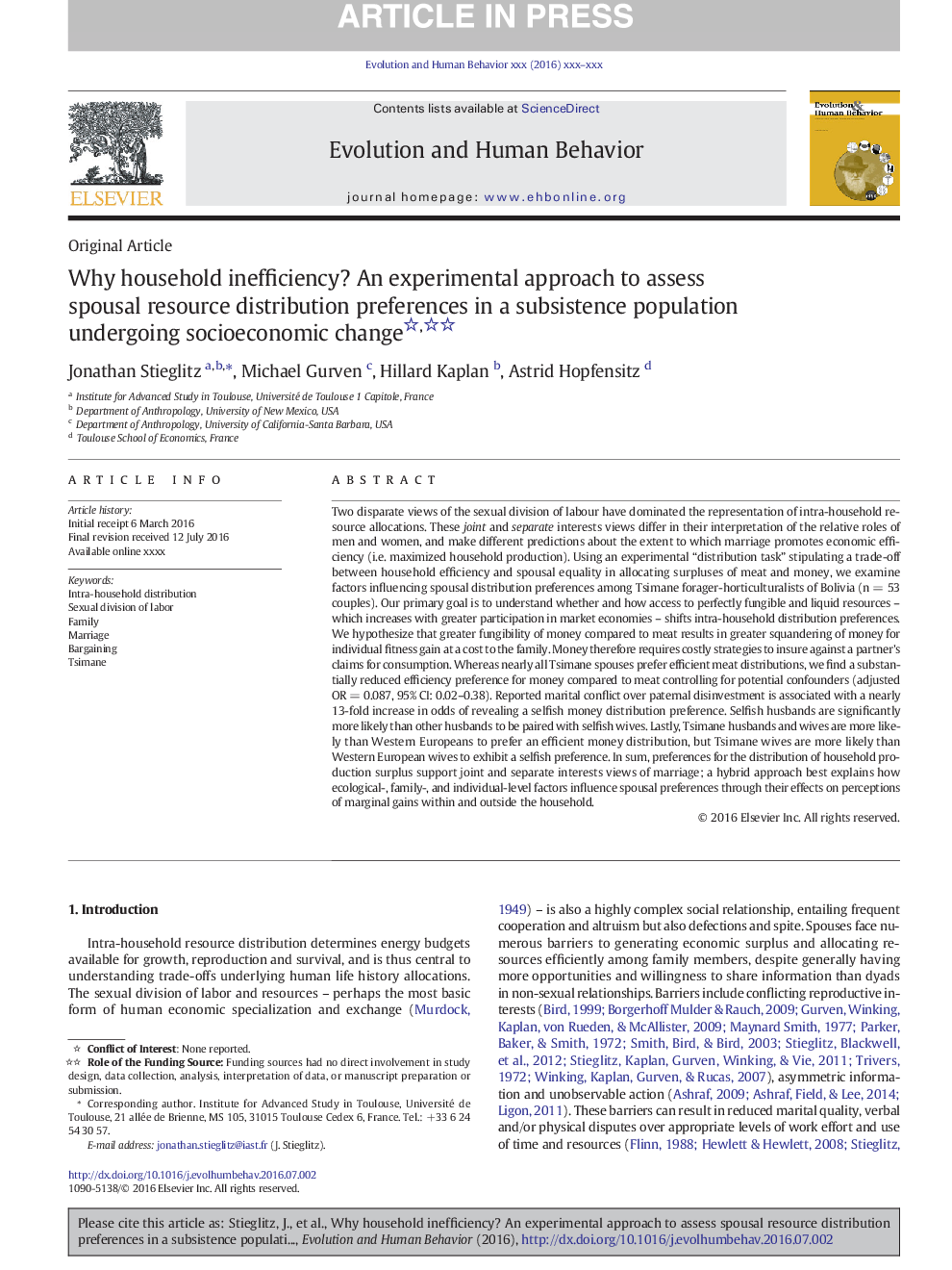ترجمه فارسی عنوان مقاله
چرا ناکارآمدی خانوار؟ یک رویکرد تجربی برای ارزیابی توزیع منابع همجنسگرا در یک گروه معیشت تحت تغییرات اجتماعی و اقتصادی
عنوان انگلیسی
Why household inefficiency? An experimental approach to assess spousal resource distribution preferences in a subsistence population undergoing socioeconomic change
| کد مقاله | سال انتشار | تعداد صفحات مقاله انگلیسی |
|---|---|---|
| 102575 | 2017 | 11 صفحه PDF |
منبع

Publisher : Elsevier - Science Direct (الزویر - ساینس دایرکت)
Journal : Evolution and Human Behavior, Volume 38, Issue 1, January 2017, Pages 71-81

